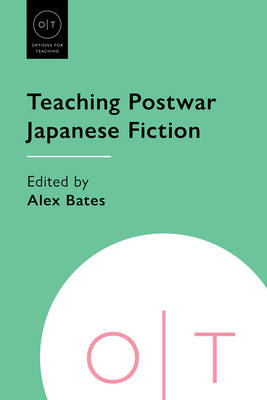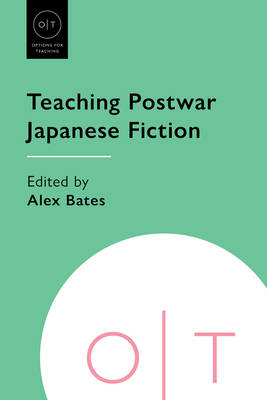
- Afhalen na 1 uur in een winkel met voorraad
- Gratis thuislevering in België
- Ruim aanbod met 7 miljoen producten
- Afhalen na 1 uur in een winkel met voorraad
- Gratis thuislevering in België
- Ruim aanbod met 7 miljoen producten
Omschrijving
Essays about teaching postwar Japanese fiction in its cultural and historical contexts.
As Japan moved from the devastation of 1945 to the economic security that survived even the boom and bust of the 1980s and 1990s, its literature came to embrace new subjects and styles and to reflect on the nation's changing relationship to other Asian countries and to the West. This volume will help instructors introduce students to novels, short stories, and manga that confront postwar Japanese experiences, including the suffering caused by the atomic bombings of Hiroshima and Nagasaki, the echoes of Japan's colonialism and imperialism, new ways of thinking about Japanese identity and about minorities such as the zainichi Koreans, changes in family structures, and environmental disasters. Essays provide context for understanding the particularity of postwar Japanese literature, its place in world literature, and its connections to the Japanese past.
This volume contains discussion of Tawada Yōko's "The Bath"; Nakagami Kenji's "The Cape"; works by Murakami Haruki; The Apprenticeship of Big Toe P; works by Mishima Yukio; Black Rain; Serai Yūichi's "Birds"; Hajime Isayama's Attack on Titan; works by Ishimure Michiko; 3/11; Araki Tetsurō; Yasunari Kawabata's Thousand Cranes; Ariyoshi Sawako's The Twilight Years; Endō Shūsaku's Silence; and works by Kawabata Yasunari.
Specificaties
Betrokkenen
- Uitgeverij:
Inhoud
- Aantal bladzijden:
- 372
- Taal:
- Engels
- Reeks:
Eigenschappen
- Productcode (EAN):
- 9781603295932
- Verschijningsdatum:
- 17/01/2023
- Uitvoering:
- Hardcover
- Formaat:
- Genaaid
- Afmetingen:
- 152 mm x 229 mm
- Gewicht:
- 612 g

Alleen bij Standaard Boekhandel
Beoordelingen
We publiceren alleen reviews die voldoen aan de voorwaarden voor reviews. Bekijk onze voorwaarden voor reviews.











